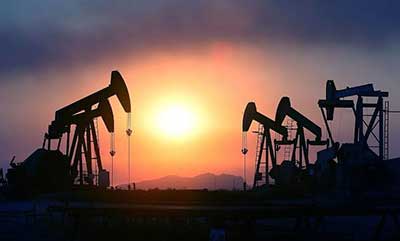Date: 15/03/2023
Relevance: GS-3: Indian Economy and issues relating to Planning, Mobilisation of Resources, Growth, Development and Employment
Key Phrases: European Union (EU), exports of petroleum products, Higher Shipments Of Processed Goods, Directorate General Of Commercial Intelligence And Statistics (DGCIS), Price Caps On Russian Oil
Why in News?
- India's exports of petroleum products to the European Union (EU) have increased significantly in recent months as the continent weans itself off refined goods from Russia as a result of the conflict in Ukraine.
- Higher shipments of processed goods to the EU at a time when India's oil imports from Russia have risen to historic highs suggests that Indian refiners, particularly private sector companies, are trying to partially fill the supply gap for the area as it turns down Russian crude and products.
Key Highlights:
- India’s petroleum product exports to the EU rose 20.4 per cent year on year in April-January to 11.6 million tonnes as per an analysis of data from the Directorate General of Commercial Intelligence and Statistics (DGCIS).
- In the run-up to the EU’s ban on Russian petroleum products from February 5, India saw its refined product exports to the region rise sequentially for five straight months, touching 1.90 million tonnes in January, the highest monthly volume in the first 10 months of the current fiscal.
- In April-January, the EU accounted for close to 15 per cent of India’s total petroleum product exports of 79 million tonnes, against 12 per cent in the year-ago period.
- In the four months leading to the EU’s ban on Russian refined products, its share in India’s petroleum product exports rose from 16 per cent to almost 22 per cent.
Directorate General of Commercial Intelligence & Statistics (DGCIS)
- The Directorate General of Commercial Intelligence & Statistics (DGCIS) is the premier organization of Government of India for collection, compilation and dissemination of India’s trade statistics and commercial information.
- This Directorate, with its office located at Kolkata, under the Ministry of Commerce, Government of India is headed by the Director General, an Additional Secretary level officer of Indian Statistical Services (ISS).
- It is the first large scale data processing organization functioning as a nodal agency for Export & Import data in the country.
Significance Of The Rise In India’s Petroleum Product Exports To The EU?
- From the global oil markets perspective, suppliers like India are helping maintain a demand-supply balance, while preventing extreme price shocks.
- The EU does not want to buy crude as well as refined fuels and products from Russia.
- Countries like India, which is a major oil refiner, are playing their part in bridging the gap by buying Russian oil on one hand, and increasing supply of refined products to the EU on the other.
- India is a major refiner with an annual refining capacity of about 250 million tonnes.
- While it is also one of the top consumers of crude oil, India’s refining capacity is higher than its domestic demand, making the country a net exporter of petroleum products.
- Indian refiners, particularly export-oriented private sector players Reliance Industries and Nayara Energy, stand to gain from the West’s punitive action against Russian oil and gas sector.
- This is because it allows Indian refiners to purchase Russian oil at a discount while earning robust margins on product supplies to Europe.
- Hence, even while the EU avoids buying oil and petroleum products directly from Moscow, some of it seems to be making its way to European coastlines via India.
- In the prevailing circumstances, India now finds itself playing an increasingly prominent role in the global crude oil and refined products supply map.
What are Petroleum products?
- Petroleum products are materials derived from crude oil (petroleum) as it is processed in oil refineries.
- Unlike petrochemicals, which are a collection of well-defined usually pure organic compounds, petroleum products are complex mixtures.
- The majority of petroleum is converted to petroleum products, which include several classes of fuels.
- The largest share of oil products is used as "energy carriers", i.e. various grades of fuel oil and gasoline.
- These fuels include or can be blended to give gasoline, jet fuel, diesel fuel, heating oil, and heavier fuel oils.
- Heavier (less volatile) fractions can also be used to produce asphalt, tar, paraffin wax, lubricating and other heavy oils.
- Refineries also produce other chemicals, some of which are used in chemical processes to produce plastics and other useful materials.
- Since petroleum often contains a few percent sulfur-containing molecules, elemental sulfur is also often produced as a petroleum product.
- Carbon, in the form of petroleum coke, and hydrogen may also be produced as petroleum products.
What are the views of the Western Countries on Higher Petroleum Product exports to the EU?
- International media reports indicate that while the West was displeased with India's rising purchases of Russian oil in the wake of Moscow's invasion of Ukraine, major Western powers like the US are at ease with expanding supplies of Indian refined goods to Europe.
- This is mainly because in their view, refiners in countries like India are ensuring that the global oil and refined products market remains balanced and adequately supplied.
- In fact, numerous experts see higher purchases of Russian oil and rising exports of petroleum products from countries like India as critical for the success of the price caps on Russian oil and refined products–imposed by G7 countries and their allies–without causing a global supply shock.
- To that extent, the West does not seem to mind Indian refiners benefitting from discounts on Russian crude and high margins on product supplies to the EU.
Source: The Indian Express
Mains Question:
Q. Discuss the significance of the price cap on Russian oil as well as recent sequential rise in India’s petroleum product exports to the EU. (150 words).






















